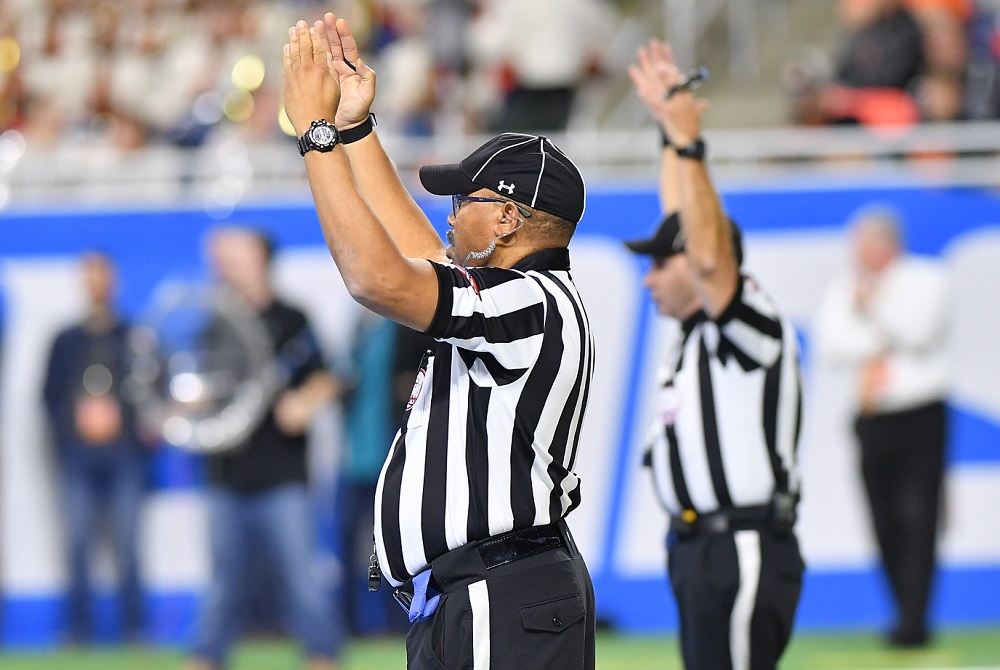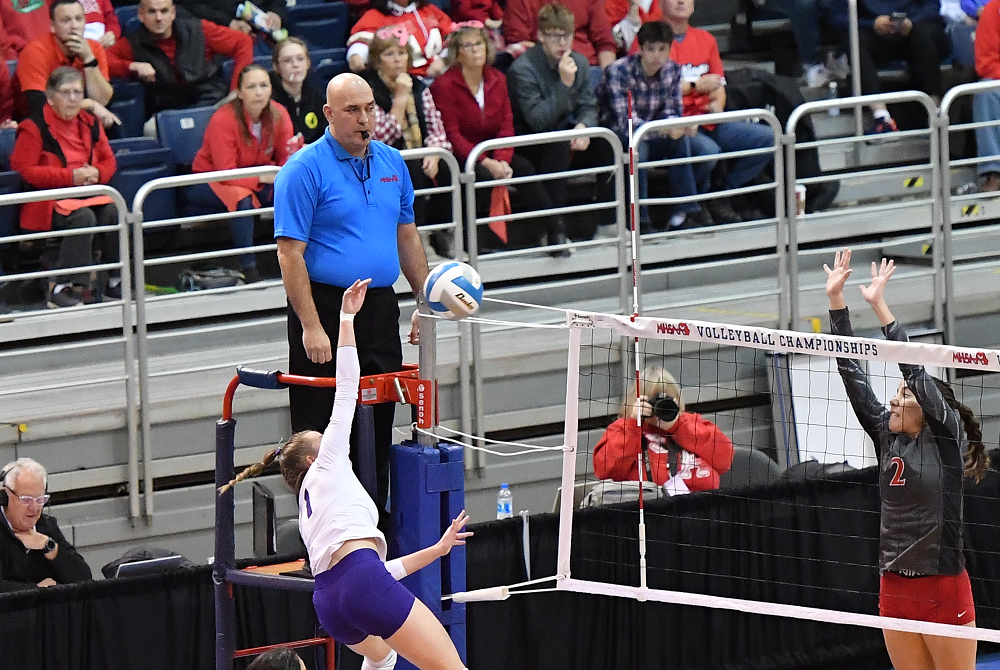
Be the Referee: Protocols & Mechanics
By
Geoff Kimmerly
MHSAA.com senior editor
August 26, 2021
“Be the Referee” is back for 2021-22 with MHSAA assistant director Brent Rice explaining how rules have reverted or been modified due to last year’s COVID-19 adjustments.
Be The Referee is a series of short messages designed to help educate people on the rules of different sports, to help them better understand the art of officiating, and to recruit officials.
Below is this week's segment – Protocols and Mechanics – Listen
Other than a few select instances, all MHSAA protocols, procedures and playing rules have returned to what they were pre-COVID.
This means that football team boxes will return to the area between the 25-yard lines, traditional ball-handling and other officials mechanics will return in all sports and postgame handshakes will be permitted as each school sees fit.
Additionally, there will be some rules modifications that were adopted during the pandemic that will likely be kept as part of the normal playing rules moving forward. The one that stands out for this upcoming fall season is that in volleyball, teams will not switch benches or sides of the net unless the referee determines that a team is at a disadvantage due to the layout of the facilities and obstructions.

Be the Referee: Registration Process
By
Sam Davis
MHSAA Director of Officials
September 26, 2023
Be The Referee is a series of short messages designed to help educate people on the rules of different sports, to help them better understand the art of officiating, and to recruit officials.
Below is this week's segment – Registration Process - Listen
We talk a lot about the need for registered officials. But how do you sign up? What does it take to become a referee, umpire, or judge?
The steps are simple. Go to MHSAA.com to the “Officials” tab and identify the sport or sports you are interested in. Next, complete the MHSAA Principals of Officiating and the Officials Guidebook Exams.
The Officials Guidebook covers basic elements and procedures for becoming a sports official. This first step of the process covers playing rules, ejection protocols, game assignments, and payment of game fees.
Once you pass the exams, it’s time to connect with a locally-approved officials association. The local associations are the ones that provide the training – whether it’s on the court, on the field, on the mats, or video training – to get that person completely immersed in the rules, mechanics, and coverages of what it takes to become a good official.
Previous Editions
Sept. 20: Animal Interference - Listen
Sept. 13: Feet Rule on Soccer Throw-In - Listen
Sept. 6: Volleyball Jewelry - Listen
Aug. 30: Football Rules Similarities - Listen
Aug. 23: Football Rules Differences - Listen
(PHOTO by Gary Shook.)

